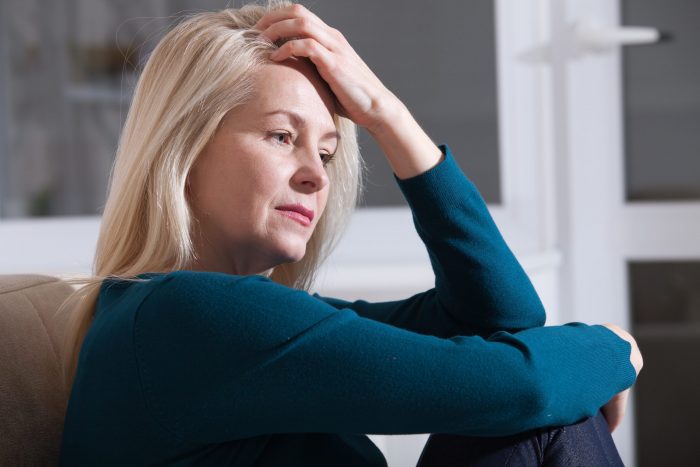3 Different Things That Cause Anxiety and Their 3 Different Solutions

Maryann was raised by a mother who was both emotionally intense and needy. All through her childhood, Maryann had to be very caring and supportive toward her mother to try to prevent explosions.
Because of this, Maryann grew up with strong tendencies to care for and placate others deeply entrenched in her character. But these character traits, essential survival mechanisms growing up, became a serious problem for her in her adult life. Maryann was such a placater that she wasn’t taken seriously at work. Others often took advantage of her. Maryann was not happy.
Finally, Maryann decided that she needed to change. She decided to stop placating, stop agreeing with everyone and everything, and begin to show more backbone. But it wasn’t easy. Each time Maryann tried to speak up for herself to express disagreement or assert her own needs, she felt intense anxiety come over her.
Essentially everyone knows first-hand what it means to be anxious. Few among us are spared this intense feeling of discomfort.
William James, who is considered The Father of American Psychology, described his own anxiety this way: “a horrible dread at the pit of my stomach … a sense of the insecurity of life.”
Since anxiety is so common and troublesome, I’ve seen plenty of it in my work as a psychologist. One thing I’ve noticed is that all anxiety is not the same. The particular type of anxiety you have determines not only how it feels, but also how it should be treated and managed.
3 Causes of Anxiety
1. Biology: Research has shown that some babies are born with an anxious temperament. Babies who are observed as edgy and reactive have been seen to grow up to be edgy and reactive adults; in other words, anxious babies grow into anxious adults. This type of anxiety is genetic, and it tends to run in families.
Biology, however, is not a sentence to a lifetime of anxiety. First, because biological anxiety waxes and wanes throughout your lifetime, it may become problematic really only during times of transition or stress. And second, because you can learn to manage your biological anxiety.
Best Solution: Anxiety management techniques are plentiful and effective. The best way to learn them is to see a cognitive/behavioral therapist. Some common anti-depressant medications are also effective in treating biological anxiety.
2. Childhood Emotional Neglect: This essentially boils down to how you handle your feelings. When you push your emotions down or suppress them, they don’t simply disappear. Instead, they remain there, buried. Repressed and suppressed feelings pool together under the surface and become a diffuse form of anxiety. This type of anxiety seems to come and go at will. It becomes your main feeling. In general, you may find yourself existing in two states: you either feel anxious, or you feel nothing at all.
Best Solution: The best solution for this type of anxiety is to break through the wall between yourself and your pool of blocked-off emotions. Pay attention to your feelings, allow yourself to feel them, learn to put them into words, and how to manage and express them. This may sound like a lot of work, but it will gradually reduce your anxiety and will have multiple other positive effects upon your life satisfaction as well.
3. Personal Growth: This is one of the most powerful, and yet least talked about, forms of anxiety. It’s the anxiety that’s naturally built into virtually every step of emotional or psychological growth that you take in your lifetime. It’s especially intense when you’re trying to give up a coping mechanism that you needed in childhood (like Maryann). This anxiety arises when you’re about to make a healthy change in yourself, and it tries to pull you backward.
Each time Maryann tries to abandon the habit that saved her life in childhood, her body screams, “No-o-o-o-o!” It does this by sending her feelings of fear, to alert her that what she’s about to do is dangerous.
Best Solution: The most helpful strategy in managing this type of anxiety is simply recognizing what it is. When you can accept that it’s only your body warning you against something that’s not dangerous, you can accept the feeling, and then override it. In Maryann’s situation, a vital step in her growth process involves not giving in to the wave of anxiety she feels, but instead letting it wash over her like a wave; and then overriding it. This means speaking up in spite of it.
Each time Maryann manages her anxiety this way, ending with healthy action, she is reducing her anxiety’s power. She’s essentially re-programming her brain to recognize that the new behavior (speaking up) is not dangerous, but adaptive and healthy.
Every single human being, every single day receives messages from their body.
“Escape!”
“Stop!”
“Stay quiet!”
“Don’t try that,” insist the voices of your anxiety.
So now, you must begin to insist back: “I will not run away from this. I will not stop. I will not stay quiet, I will speak up. I will try that.”
Accept the feeling, understand its cause, and you can take control of what’s been controlling you.
To find out if you grew up with Childhood Emotional Neglect Take The Emotional Neglect Test. It’s free. To learn more about how to understand, manage, and override your emotions, see the book, Running on Empty.
A version of this article was originally published on psychcentral.com. It has been updated and republished here with the permission of the author and Psychcentral.
